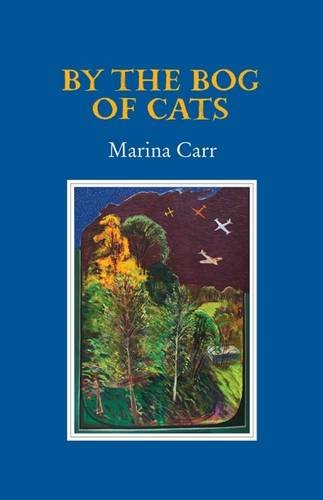What do you think?
Rate this book


83 pages, Paperback
First published January 1, 1998
Oh Hester....WHAT you did!
Hester is a wild one who hankers to spend her life on the bleak landscape BY THE BOG OF CATS yearning for her crazy long lost mother. She dearly loves her seven year old daughter Josie and her child's father Carthage....whom she refuses to give up without a fight.
Cat-Woman is her crazy friend with a taste for mice and vision enough to give fair warning, "leave this place now or you never will."
Mostly though, crazy Hester is a loaner with enemies and a life filled with abandonment, betrayal, deadly secrets and guilt....most of all guilt.
Outrageously crazy, ghastly and nasty well-done characters....and don't forget....DARK!
I was born on the Bog of Cats and on the Bog of Cats I’ll end me days. I’ve as much right to this place as any of yees, more, for it holds me to it in ways it has never held yees. And as for me tinker blood, I’m proud of it. It gives me an edge over all of yees around here, allows me see yees for the inbred, underbred, bog-brained shower yees are.In this speech. she articulates another characteristic trope of postmodern writers who consider themselves postcolonialist and feminist, derided by some as merely the Nobel Savage redux: the social margin as place of superior vision. Considering herself essentially native to the bog despite not possessing it as property in a way Xavier can understand, she knows "where the best bog rosemary grows and the sweetest wild bog rue" and enters the play dragging a dead swan, Black Wing, in whose nest her mother laid her as a child, because "Swane means swan." We don't have to wonder long if she put on its knowledge with its power.
CAROLINE. None of it was how it was meant to be, none of it.But Medea's murdering her children is so disproportionate to the provocation—and was, some scholars argue, Euripides's own addition to the myth—that we might legitimately see the tragedy as a decline from the heights of Aeschylus and Sophocles, in whom, as Hegel told us, the tragic protagonists embody live ethical forces. Medea is simply not justified in her action as Orestes or Antigone are.
HESTER. Nothin' ever is, Caroline. Nothin'.